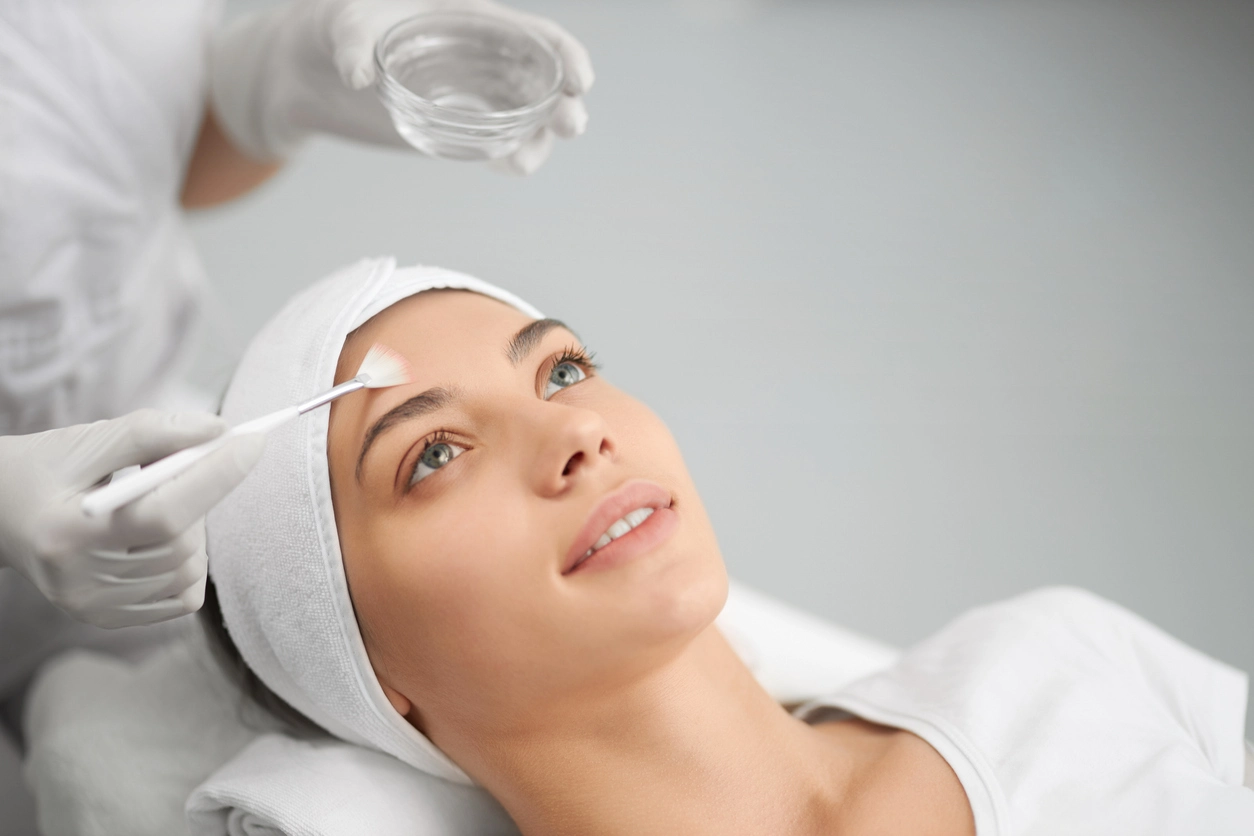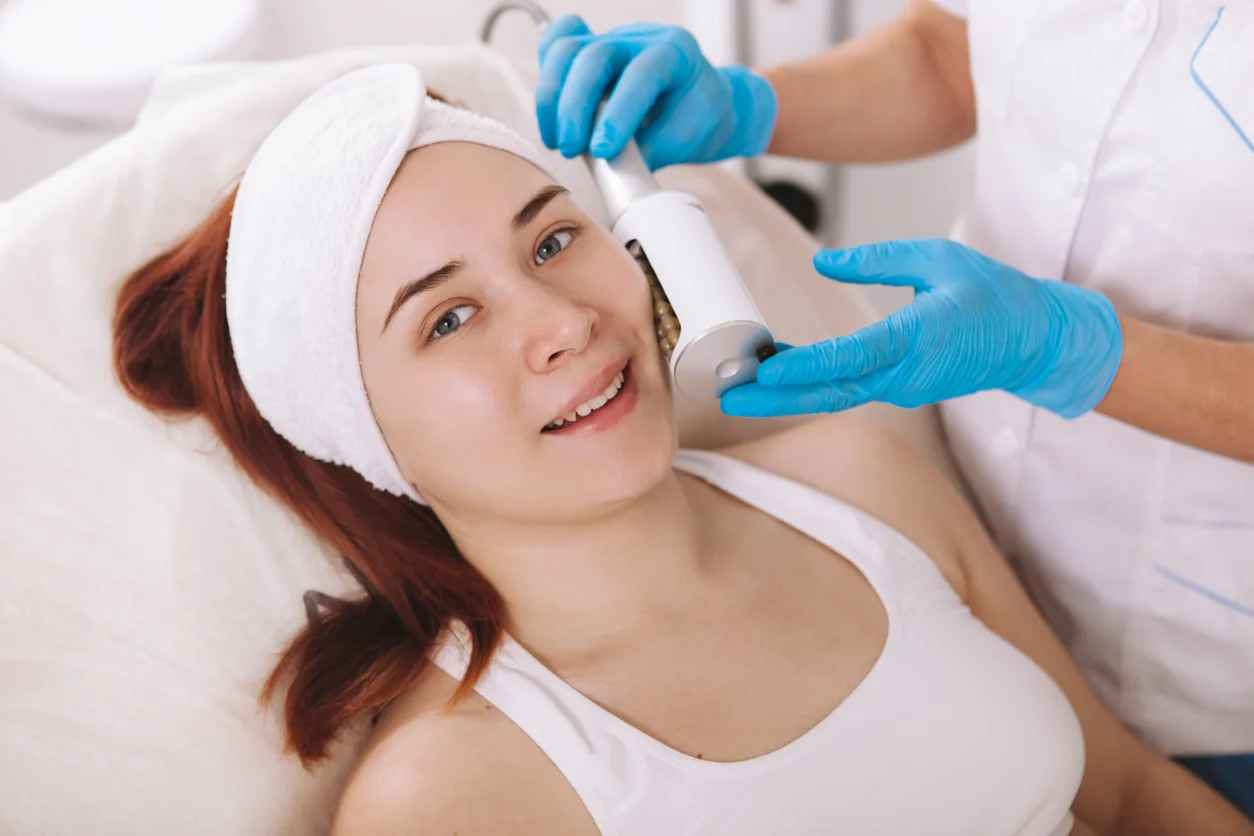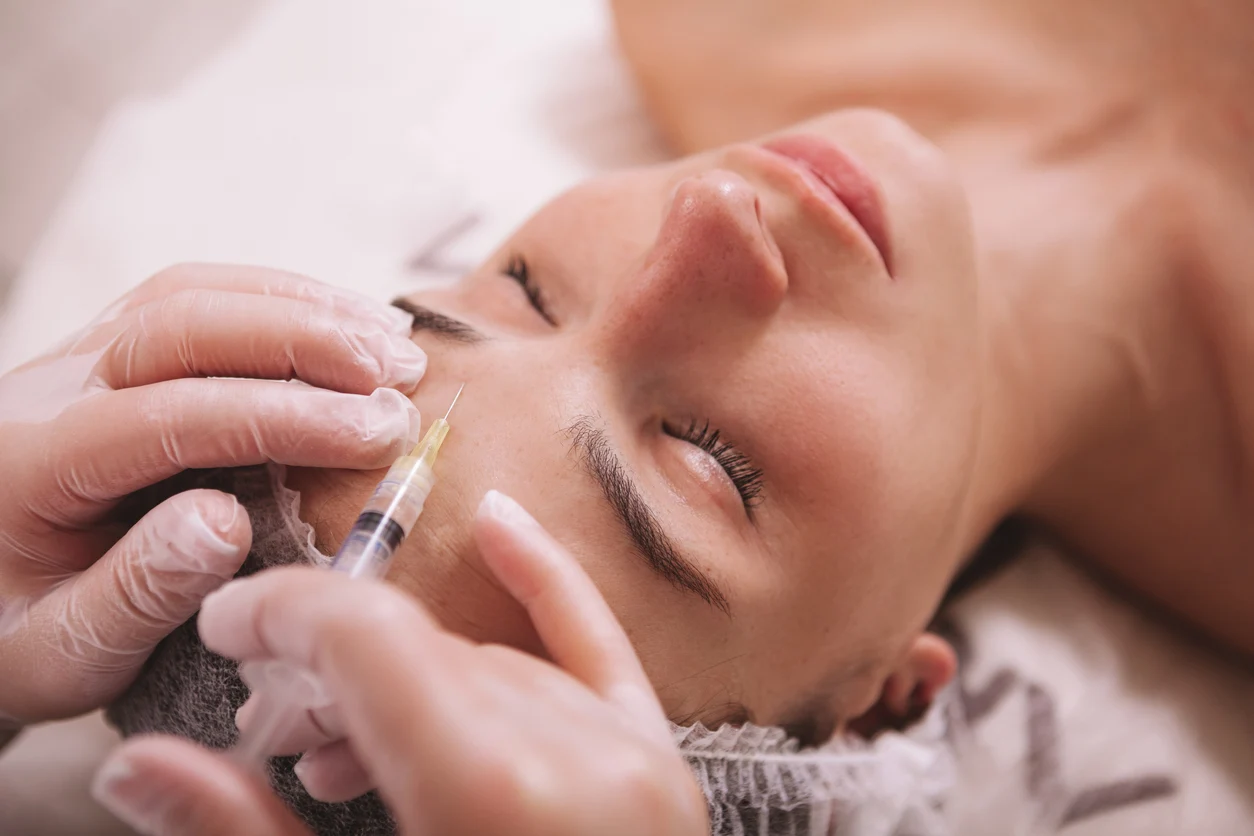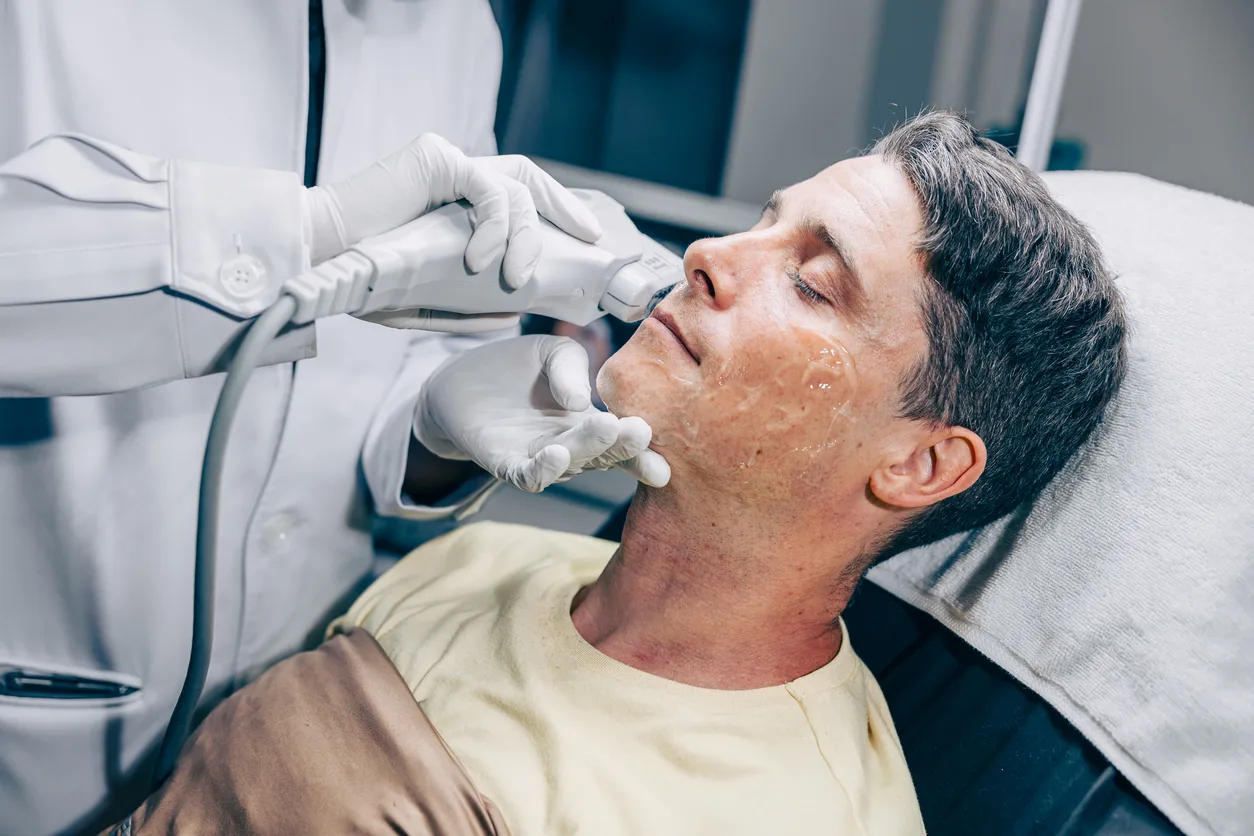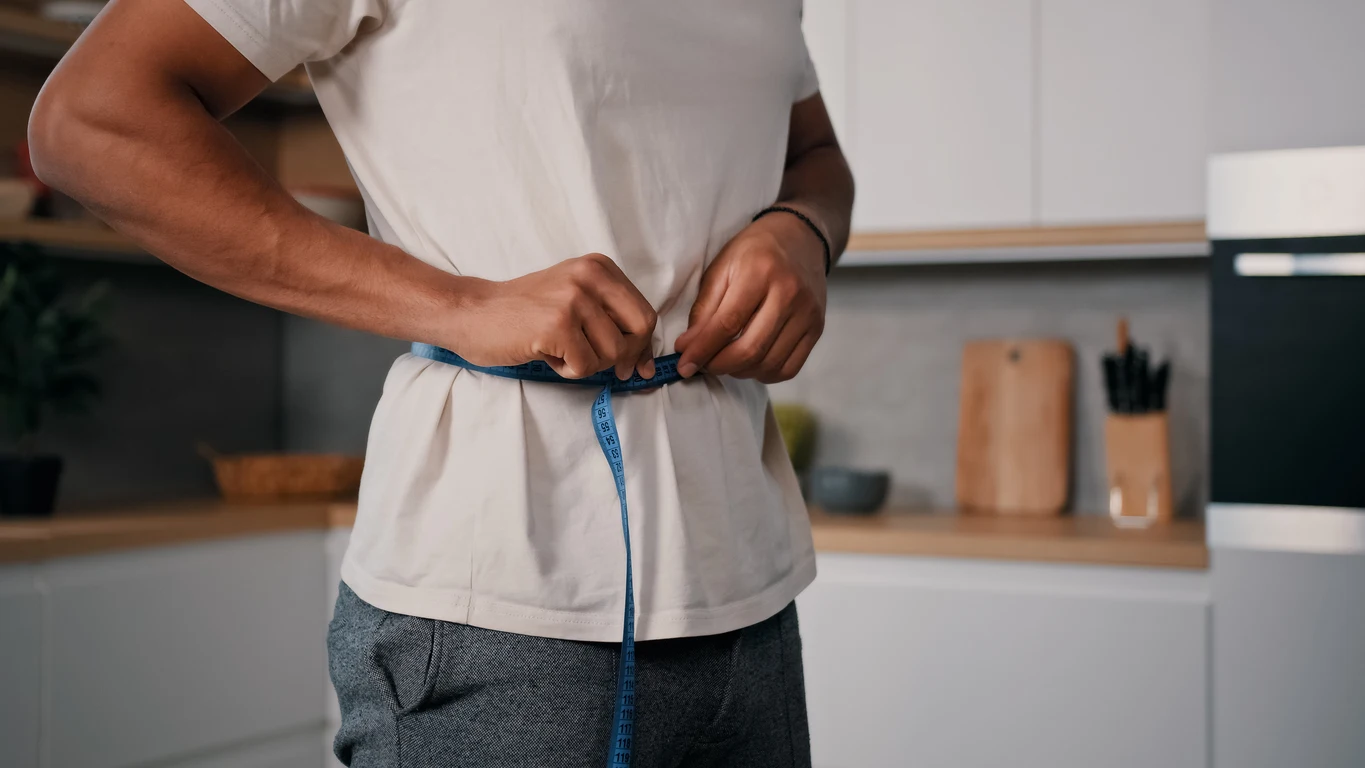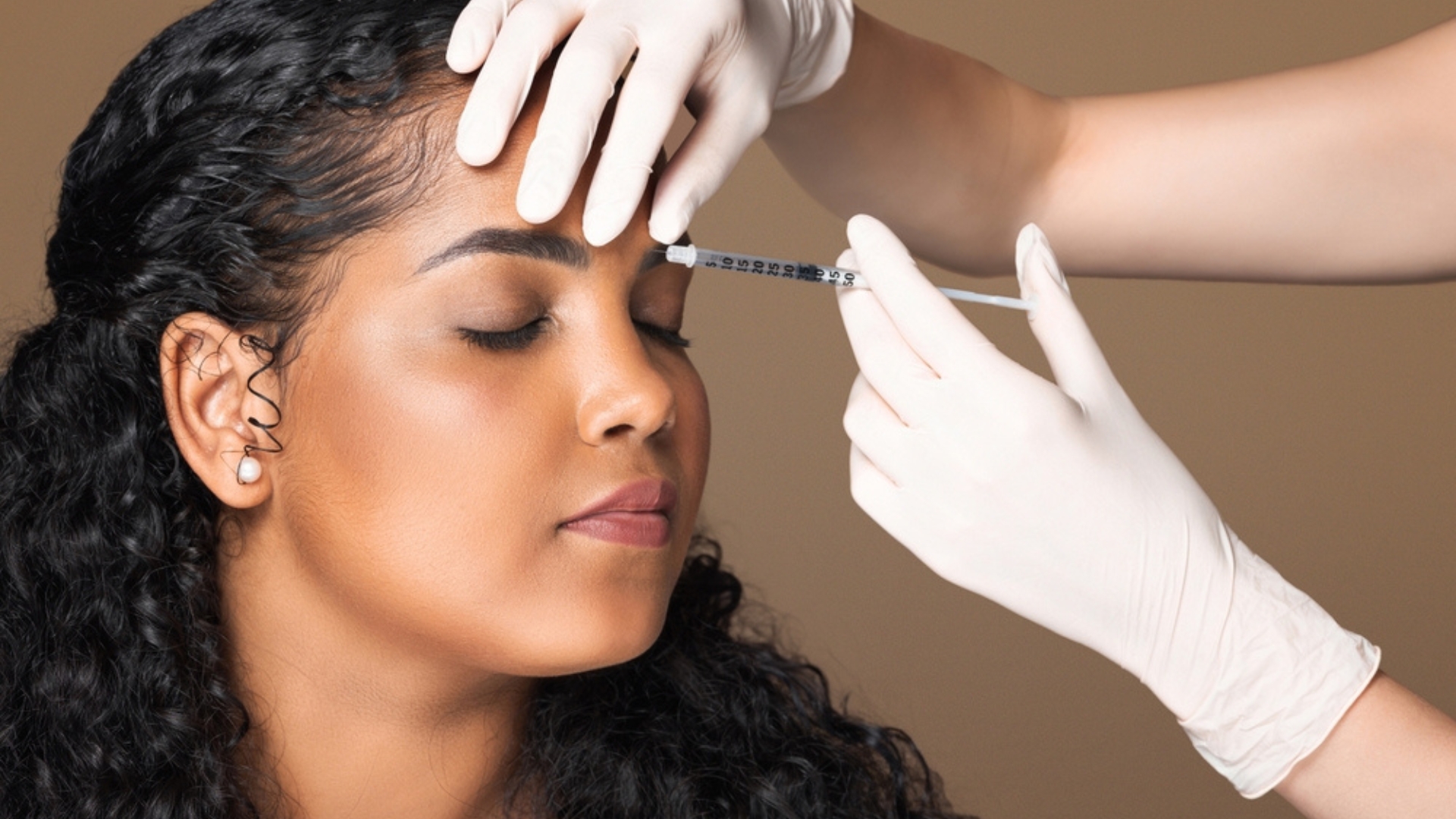
Bruising After Botox or Filler
Beauté Aesthetics offers Botox in NYC to help you look your best and enhance your natural appearance while ensuring you still look like yourself. Our expert injectors use a light, careful touch to smooth out fine lines and wrinkles so you look more relaxed, refreshed, and approachable but not frozen or overdone.
We often have patients ask, “Does Botox cause bruising?” and, “Is there a way to prevent bruising after Botox?” We are going to answer these questions for you and give you 5 tips to help avoid and alleviate bruising from Botox injections.
What Is Botox?
Botox injections contain a purified protein that comes from a bacterium called Clostridium botulinum, which has been historically used in the medical field for decades to treat many different medical conditions. In fact, it was first used in the ophthalmology field to treat issues like crossed eyes and is used today for both medical and cosmetic purposes.
Botox is injected into certain facial muscles to temporarily relax and paralyze them so that when you make certain facial expressions like smiling, it will not result in a multitude of lines and wrinkles forming. Botox helps smooth out frown lines, crow’s feet, forehead creases, smile lines, and other types of dynamic wrinkles. You will look more refreshed but still natural-looking.
Botox is a customer favorite because it is simple and convenient to use, the treatments only take a few minutes, there is little to no downtime, and most people can return to their normal schedule right after their appointment. It normally takes a few days to start to see results, but they will gradually begin to appear with noticeable results after about two weeks. The results can last between 3 and 5 months depending on the person, the areas treated, and the number of Botox units used.
How To Reduce Bruising After Botox
Botox injections are a quick and easy way to reverse the clock and give you a more youthful-looking complexion, but even small needles can sometimes leave a bruise. Also, there are certain things about your lifestyle that may exacerbate bruising during Botox injections or right after. Here are 5 things you can do to avoid or prevent bruising after Botox treatments.
Tip #1. Avoid Alcohol And Certain Medications Before And After
Drinking alcohol or using many common pain relievers can make your blood vessels more susceptible to bleeding and cause bruises to form. You are advised to avoid alcohol or using over-the-counter, prescription, or other supplements that thin your blood for 48 hours before and after your Botox treatment. If you are taking routine medications that fall into this category, make sure to tell your cosmetic injector so they can advise you how to proceed. This small step can make a big difference in avoiding bruising after Botox.
Tip #2. Apply Cold Compresses And Arnica Gel
Ice and cold help tighten the tiny blood vessels in your face, which can prevent or reduce bruising after Botox injections. For the first four or five hours after your Botox injections, and using very gentle pressure, apply a wrapped ice or cold compress to the injection sites to help mitigate swelling and bruising. Use an intermittent schedule of 15 minutes on, 15 minutes off, etc.
Arnica gel can also help prevent the injection sites from bruising, and it can be applied to the areas every four hours.
Tip #3. Keep Your Head Elevated
The Botox needs time to get absorbed into the right areas, and you do not want it to migrate into unwanted locations, so you need to keep your head elevated for at least 4 to 6 hours after your injections. This will also help mitigate swelling and bruising in the treatment areas. Getting your treatments in the early afternoon and not too soon before it is time to go to bed will be helpful. Sleeping on several pillows so your head remains elevated for the first night is a good precaution to follow.
Tip #4. Take It Easy For The First 24 Hours
Avoid any type of strenuous exercise or physical activities for a day or two right after having Botox injections. These raise your heart rate and your blood pressure, which can make your chances of bruising after Botox worse. Also avoid things like hot tubs, saunas, and direct sun exposure.
Tip #5. Be Gentle With Your Complexion For A Few Weeks
Do not have a facial, a massage, microdermabrasion, or any type of facial treatment for at least 14 days having Botox injections. You want to be very gentle when washing your face and avoid putting any pressure on your injection sites. Use water at a mild temperature, and make sure it is not too hot or cold, and use a very mild cleanser with a soft cloth to cleanse your face with a very light touch, and rinse off the cleanser in the same gentle way, and pat your face very lightly to dry it off.
In addition to increasing the risks for bruising, you may also push the Botox into other areas of your face where you do not want it to go. It can take a few days for the Botox to firmly bind to the muscles in the treatment areas.
If you have had Botox injections in your forehead, you should avoid wearing anything tight on your head for a few days, like a headband or a hat.
Where Can I Find Botox Treatments In NYC?
If you are considering Botox injections to help lessen the appearance of fine lines and wrinkles, Beauté Aesthetics on the Upper East Side in NYC has expert injectors that can help.
The skilled team at Beauté Aesthetics focuses on natural-looking results that leave you looking refreshed, more self-confident, and more youthful-looking. Book your consultation today and learn about what Botox can do for you!
Frequently Asked Questions About Bruising After Botox
Is it common to bruise after Botox?
Yes, many people experience some mild bruising, but most bruises are small and will fade quickly on their own. Normally, they are light enough that they can be hidden with makeup if needed.
Where are the most common areas for bruising after Botox?
- Around the eyes where crow’s feet form because the skin is usually thinner and bruising can happen easier.
- Between the eyebrows, where frown lines form because the small veins in this area are easier to nick during the injection process and result in bruising.
- The forehead because it normally takes several injections to treat this area.
- Around the mouth or chin. It is less common, but since the skin in this area can be delicate, it is possible.
How long does bruising last after Botox?
In most cases, the bruising after Botox usually fades within a few days to a week, but sometimes it can take a full two weeks to disappear and will depend upon the person.
What is the 4-hour rule for Botox?
The 4-hour rule means the list of precautions your cosmetic injector will give to you about things you should and should not do for at least four hours after your treatment. This would include things like lying down, drinking alcohol, exercising, etc. Following these directions will help get the best results from your Botox treatments and avoid bruising.

